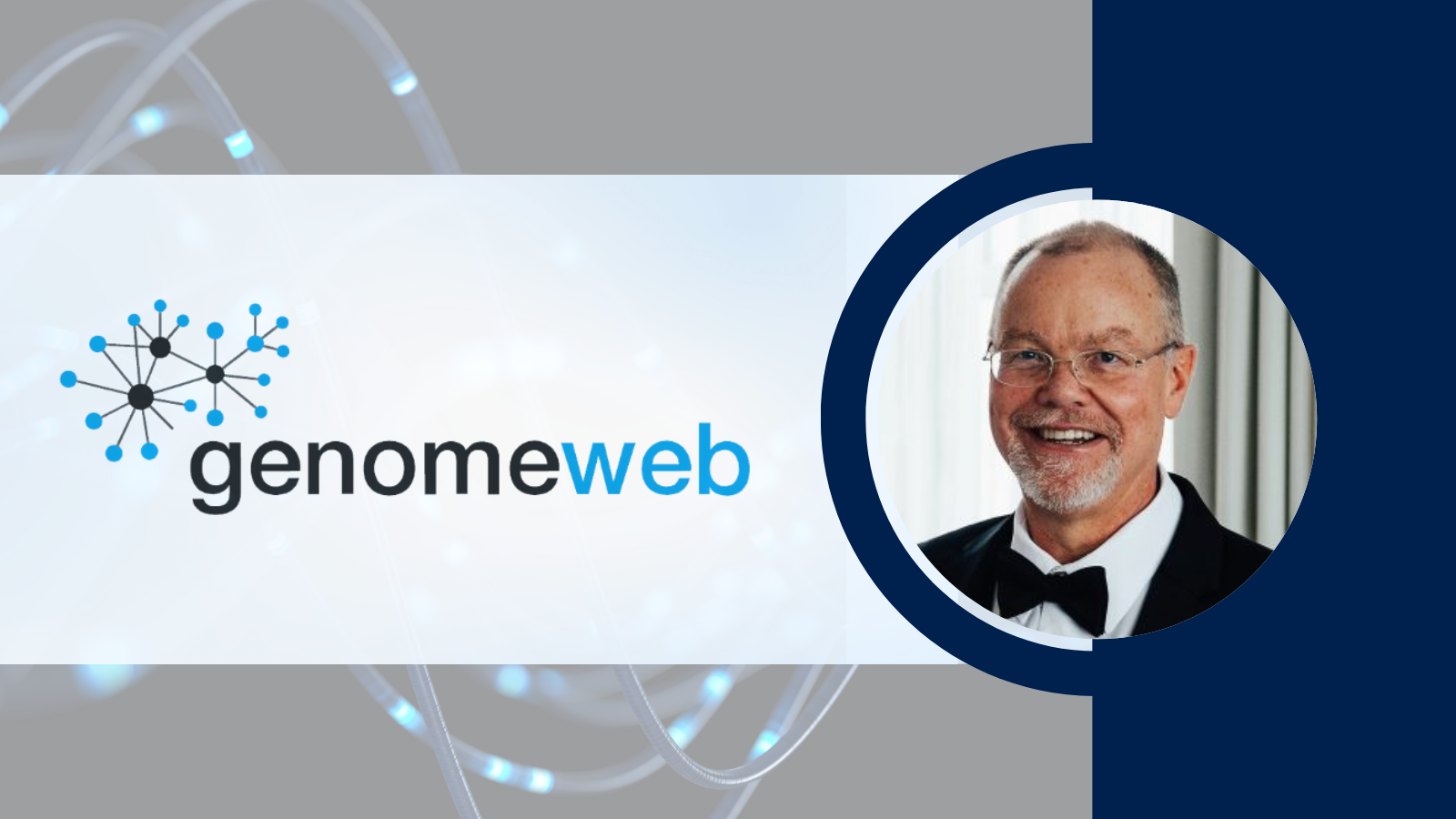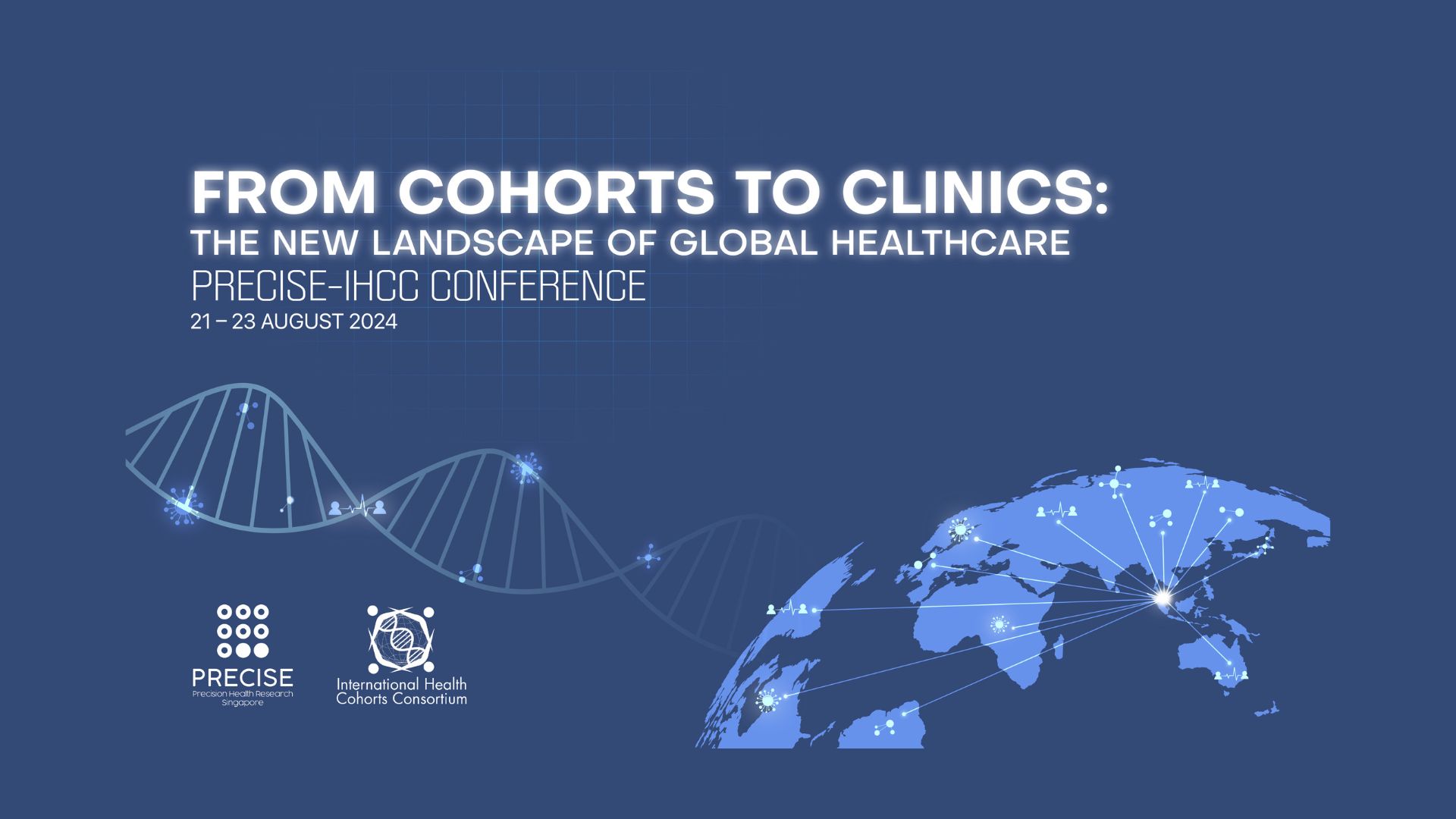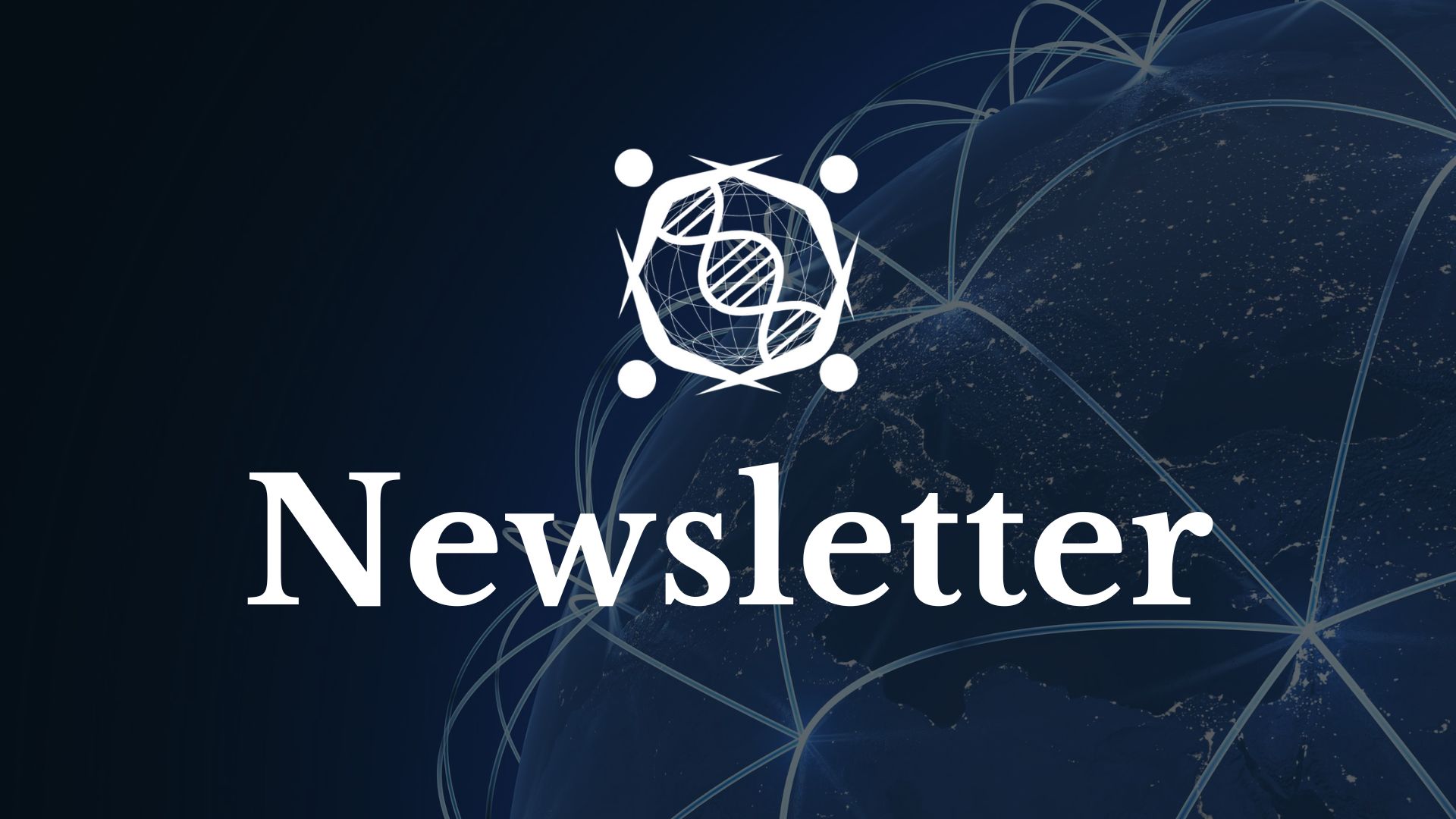IHCC Cohort Spotlight: Africa Wits-INDEPTH partnership for Genomic studies (AWI-Gen)

Prof Michele Ramsay (co-PI for the first 5 years: Prof Osman Sankoh)
The Human Heredity and Health in Africa Consortium (H3Africa) (https://h3africa.org/) has made a fundamental contribution to enhancing genomics research and bioinformatics training across the continent. It supports cohort research, research projects, ELSI projects, biobanks and training initiatives, as well as a Pan-African Bioinformatics network (https://www.h3abionet.org/). The research spans a wide range of diseases and has developed guidelines and policies for community engagement, participant consent approaches, sample and data sharing and consortium publications.
The Africa Wits-INDEPTH partnership for genomic studies (AWI-Gen) is a Collaborative Centre of H3Africa with the broad aim of investigating genomic and environmental contributions to cardiometabolic diseases (CMD) in African populations. It started in 2012 as a population cross-sectional study of adults aged 40 to 60 years at enrollment. Recruitment was done from August 2013 to August 2016 at six research centres in four sub-Saharan African (SSA) countries and included in total ~12,000 participants (Figure 1).
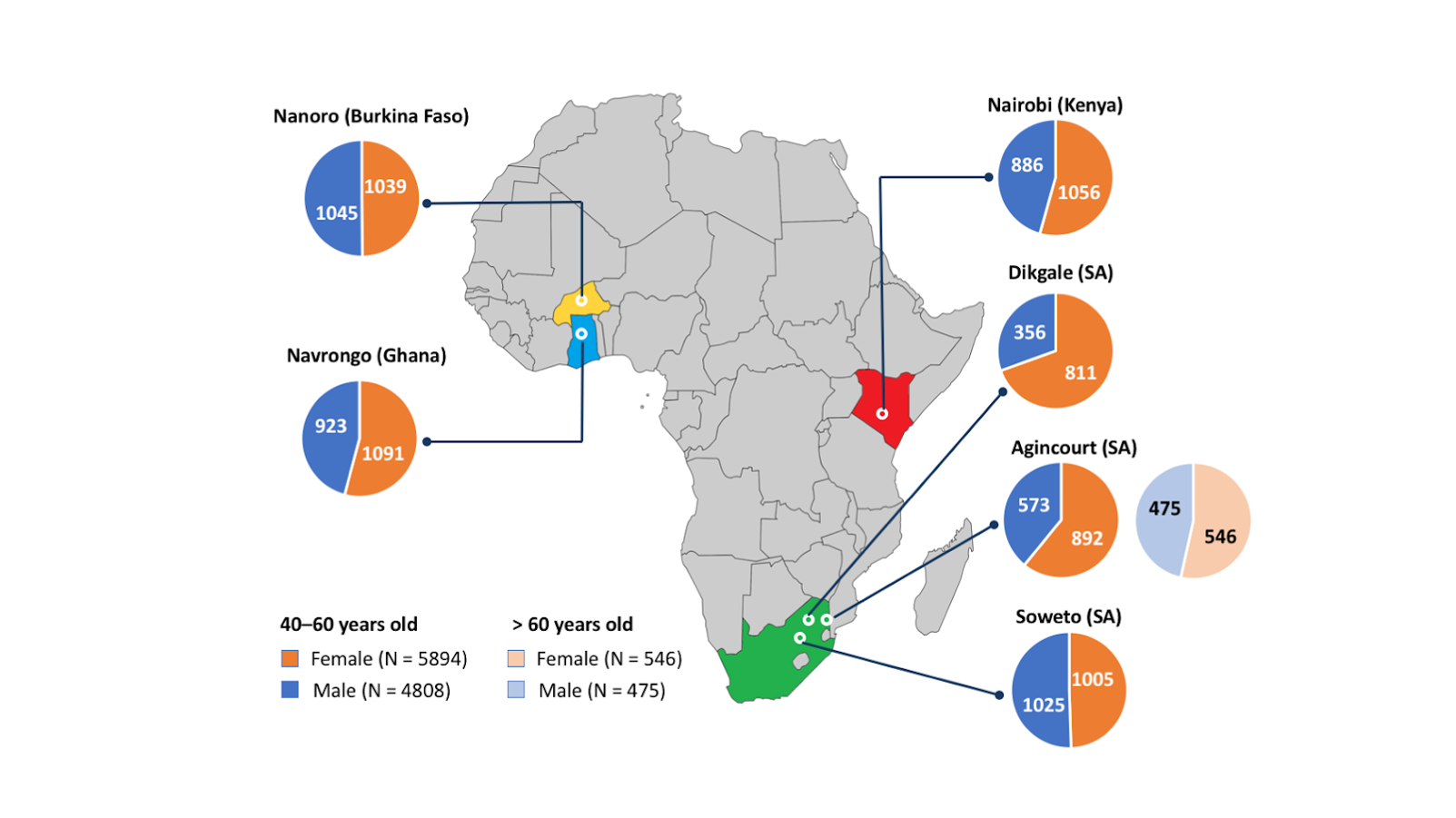
The AWI-Gen partnership leverages unique strengths of INDEPTH (International Network for the Demographic Evaluation of Populations and Their Health in low- and middle income countries) to access established frameworks for population-based research. Five INDEPTH Health and Demographic Surveillance System (HDSS) research centres are included and one additional South African research centre, representing communities from West, East and South Africa, with some being rural and others urban. The AWI-Gen Collaborative Centre’s central hub is at the Sydney Brenner Institute for Molecular Bioscience (SBIMB) at the University of the Witwatersrand in Johannesburg, South Africa.
Participants provided broad consent for future use of their data and samples. The data collected from each participant is shown in the conceptual framework and the variables are broadly related to cardiometabolic disease outcomes (Figure 2). Participants were randomly selected and reflected the prevalence of CMD in their communities. DNA, serum, plasma and urine samples are stored at the SBIMB Biobank for future use. New projects that use the AWI-Gen resources need approval from the Wits Human Research Ethics Committee (Medical).
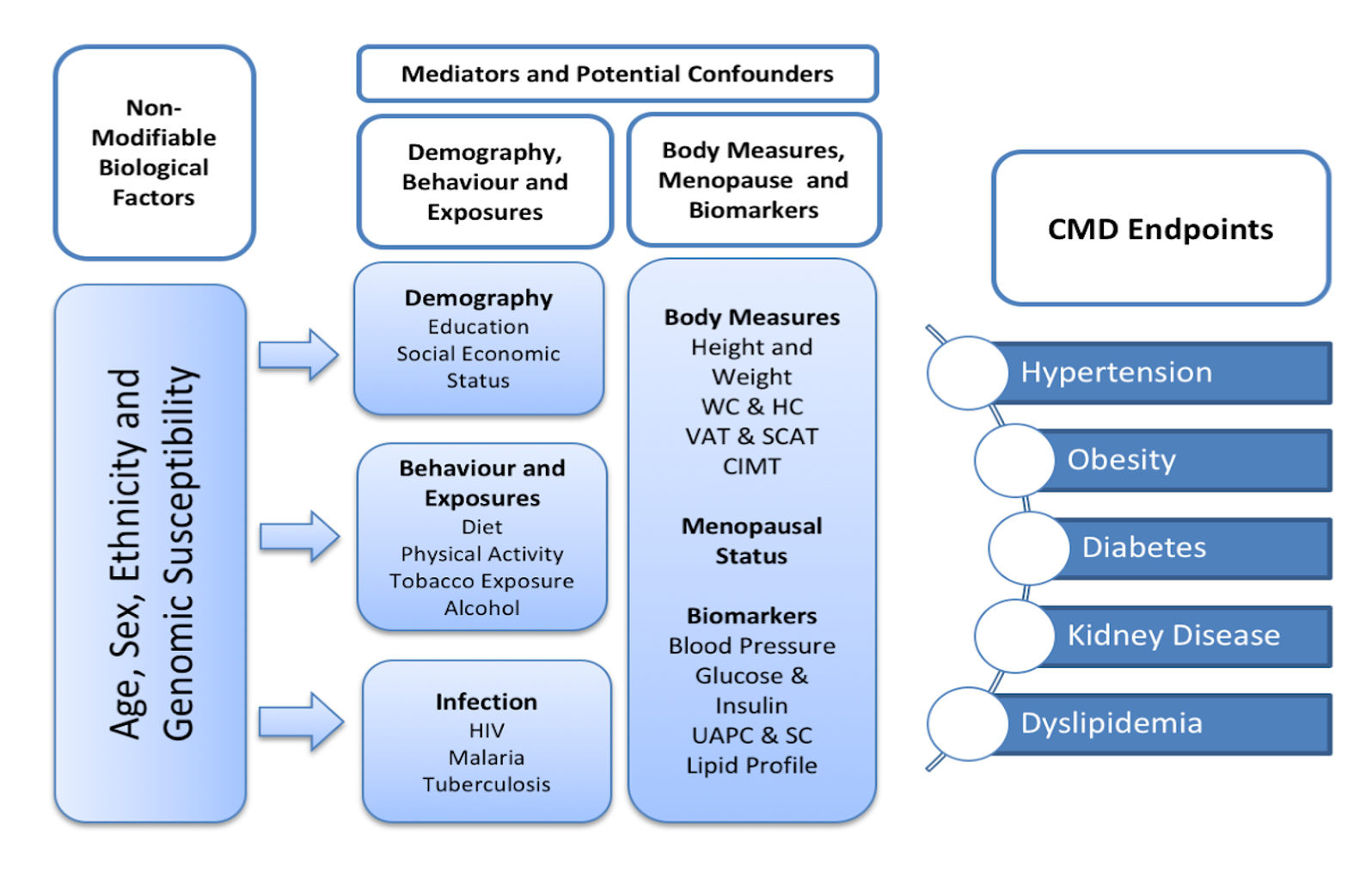
In the second funding period for AWI-Gen (2017-2023) we added three significant elements. (1) Second round of data collection (2019-2022), developing a set of longitudinal cohorts with similar data to the first round, but including more questions related to cognition and lung health; (2) Examining changes across the menopause in a selected sub-group of women and generating data on sex hormone levels and DNA methylation in the promotor regions of selected genes; and (3) Gut microbiome studies in selected individuals from each of the six study-centres.
We have deposited data in the European Genome-Phenome Archive (EGA) and in the European Nucleotide Archive (ENA) and wish to encourage collaboration. In addition to the H3Africa Consortium and the IHCC, we are currently participating in several other initiatives including the Global Lipid Genome Consortium (GLGC), CHARGE Consortium, the CARDINAL study site of the PRIMED Consortium, and the MADIVA project of the DSI-Africa Consortium.
In the context of the IHCC, AWI-Gen is a relatively small cohort, but its value lies in its participants from vastly understudied populations in Africa, and in the breadth of data collected on individual participants. This includes demographic, health and behaviour data, as well as blood and urine biomarkers and genetic data. The latter includes genome-wide genotyping (H3Africa genotyping array on the Illumina platform; n=~10,700), and whole genome sequence (n=~160) and gut microbiome sequence data on selected participants. We are delighted that AWI-Gen is a member cohort of the IHCC and in addition to participating in IHCC activities and opportunities, we hope to contribute meaningfully to many global IHCC initiatives now and in the future.
References
Acknowledgments
Investigators responsible for the conception and design of the original AWI-Gen study include the following: Michele Ramsay (PI, Wits), Osman Sankoh (co-PI, INDEPTH), Stephen Tollman (Agincourt PI) and Kathleen Kahn (Agincourt), Marianne Alberts (Dikgale PI), Catherine Kyobutungi (Nairobi PI), Halidou Tinto (Nanoro PI), Abraham Oduro (Navrongo PI), Shane Norris (Soweto PI), and Scott Hazelhurst, Nigel Crowther, Alisha Wade, Himla Soodyall, and Zané Lombard (Wits). Many others have contributed to and continue to build on the AWI-Gen study, including postdoctoral fellows, students, field workers and laboratory staff. A more complete list is available here.
AWI-Gen is funded by the NIH (Grant U54HG006938) and the South African Department of Science and Innovation (previously Science and Technology) (Grant DST/CON 0056/2014). The participating Research Centres receive funding from multiple organisation to support their core work, and AWI-Gen has benefitted from their research infrastructures. AWI-Gen received seed funding from the IHCC for a pilot project titled: Coronavirus Host Genomics Study – South Africa (COVIGen-SA), specifically to fund the genotyping of the first group of 578 participants.
Note on COVIGen-SA
Little data are available for COVID-19 research in populations resident in Africa. “Coronavirus Host Genomics Study – South Africa (COVIGen-SA)” emanated from discussion between AWI-Gen and SAPRIN principal investigators. The project evolved to include many other partner studies who were collecting COVID-19 data on South African cohorts and who were interested in the aims of the study. COVIGen-SA has two broad aims: To explore host genetic factors that contribute to moderating susceptibility, severity, and outcomes for COVID-19 in a continental African population, and to build a research resource that could be accessed by other researchers to answer questions pertinent to the outcome of SARS-CoV-2 infection in an African setting. It remains a compelling objective to search for biomarkers that would help predict who is likely to develop severe disease and to explore preventative measures to ameliorate the impact of SARS-CoV-2 infection. In the context of the IHCC, we are eager to explore potential synergies with other COVID-related research.
Prof Michele Ramsay (PhD)
Director, Sydney Brenner Institute for Molecular Bioscience
Professor of Human Genetics
South African Research Chair: Genomics and Bioinformatics of African Populations
Faculty of Health Sciences
University of the Witwatersrand
Johannesburg
South Africa
+27 (0) 11 717 6635
+27 (0) 73 647 2726
E: michele.ramsay@wits.ac.za




